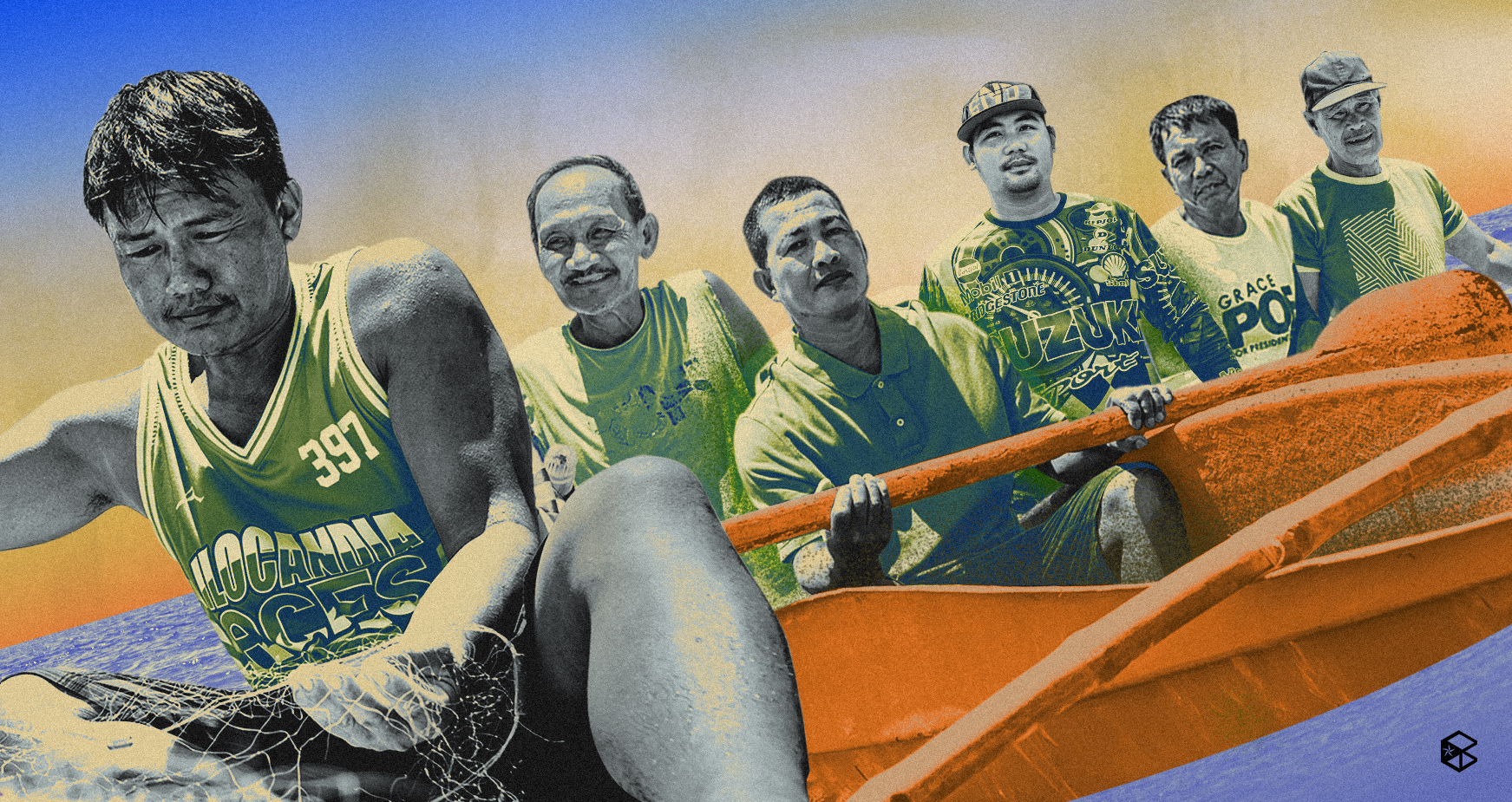Along the shores of Ilocos Sur, fisherfolk rise with the tides, casting their nets to sustain their families and uphold a way of life deeply tied to the sea. While they face dwindling resources and unpredictable seasons, their resilience and determination reflect the enduring spirit of their coastal community.
Through a series of interviews with The Benildean, fisherfolk found by shorelines of Ilocos Sur shared their stories of determination and navigating their trade. From dealing with the changing seasons to juggling other sources of income, their experiences offer a glimpse into the lives that run with the unpredictable waves of the seas.
Kuya Diosdado, 65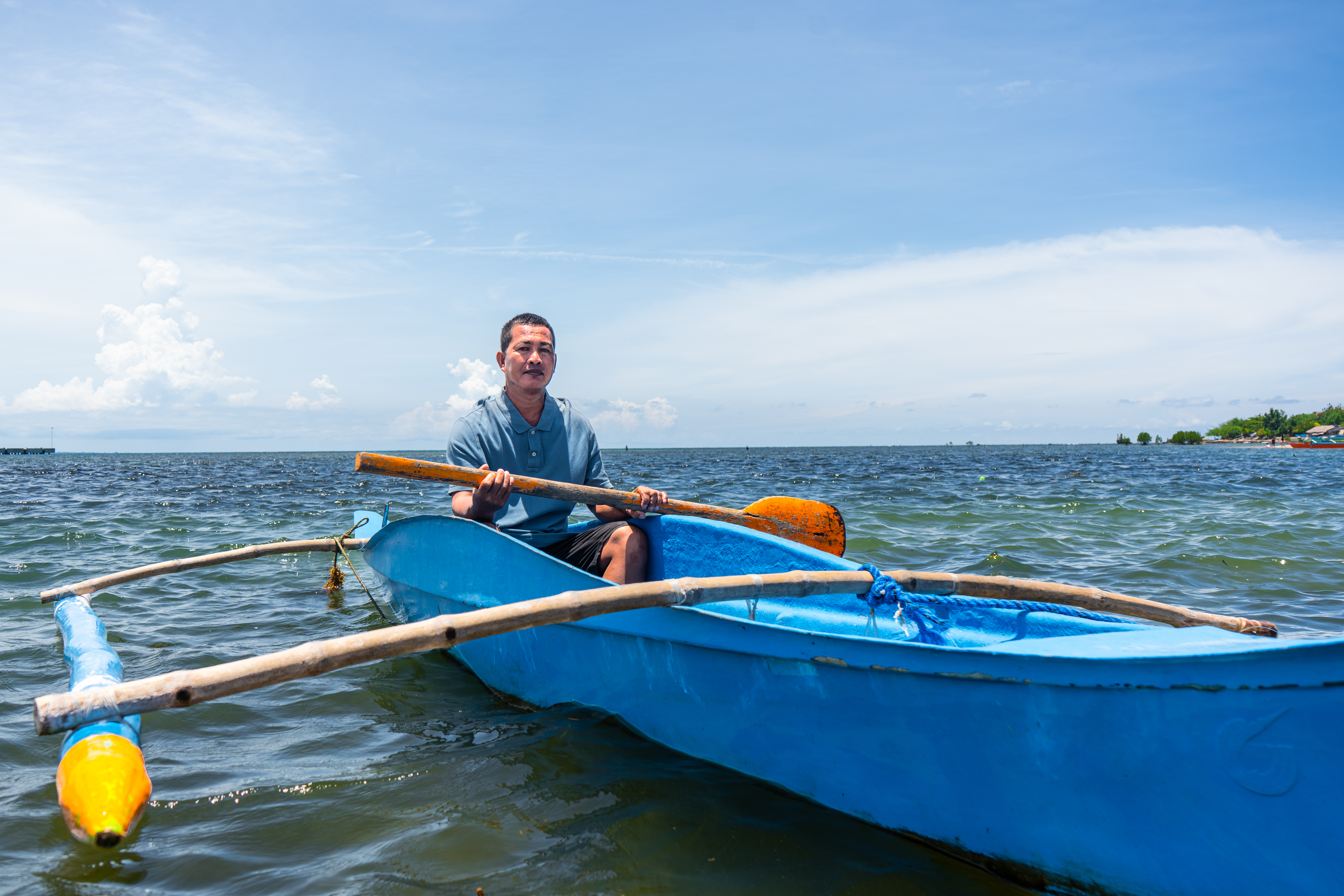
Starting as early as high school, Kuya Diosdado vividly recalls the days when fishing was less complicated and more rewarding. Now 65, he has dedicated his life to the sea, navigating its tides and challenges to provide for his family and contribute to his coastal community.
“High school pa po ako noon nung nagsimula akong mangisda,” he shares, his voice filled with pride. Over the years, Kuya Diosdado has witnessed how their livelihood has evolved. “Maganda ang pangingisda noon, pero ngayon medyo mahirap na dahil umonti ‘yung mga gamit namin,” he reflects, noting the difficulties caused by dwindling resources and aging equipment.
Despite these challenges, he also acknowledges the support they have received from organizations like the Bureau of Fisheries and Aquatic Resources (BFAR). “Tinutulungan nila kami sa pagkuha ng mga ID. Minsan, nagbibigay rin sila ng mga tali ng payaw, donasyon na bangka, basta mga pantulong sa pangingisda,” he explains, expressing gratitude for the assistance that helps sustain their work.
Having spent decades at sea, he is determined to pass on the craft to the next generation. “Pag medyo matatanda na tayo, wala nang ibang magtutuloy kung hindi yung mga bata,” he says. He is thankful that many young people in the community are showing interest, ensuring that their tradition and livelihood will continue.
For Kuya Diosdado, fishing is more than just a job. It is a calling that has supported his family and defined his identity. His hope is that the younger generation will preserve this way of life and keep their community’s connection to the sea alive for years to come.
Kuya Arnel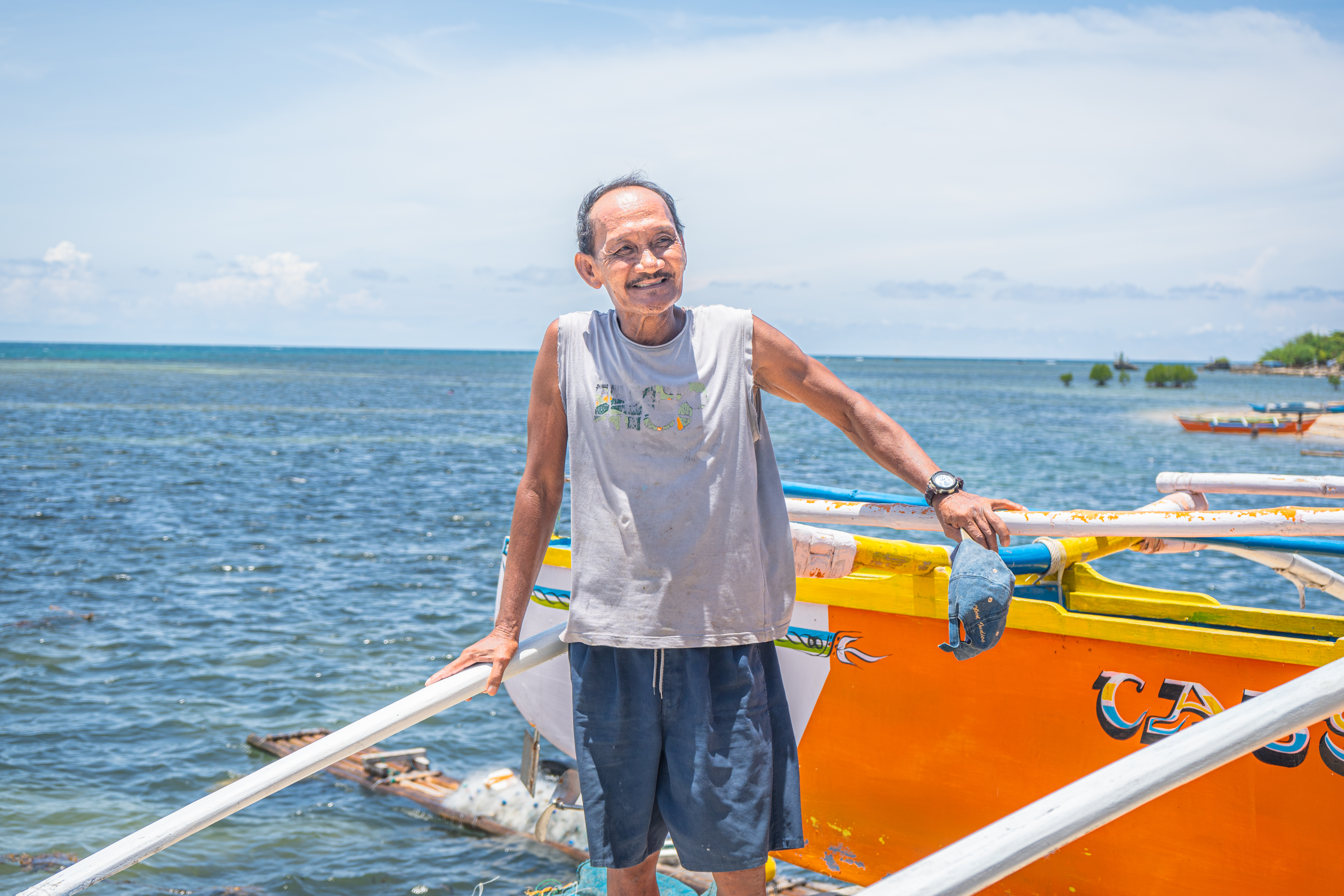
For 27 years, Kuya Arnel has dedicated his life to the sea, braving its challenges to provide for his family and keep his community afloat. Now he looks back on the years of hard work and the unpredictable nature of the fishing industry.
“Nagsisimula kami lumalaot sa gabi, tapos bumabalik na kami dito ng umaga,” he shares, describing the rhythm of his daily routine. While the nights are spent casting and hauling nets, the mornings are for bringing in the catch, hoping it’s enough to cover the family’s needs.
Fishing, however, is rarely consistent in their coastal town. “Seasonal kasi ang pangingisda dito. Kapag may bagyo o habagat, wala masyadong lumalaot,” he explains. The rough seas brought by typhoons or monsoon winds force fishermen to stay ashore, making income scarce during these periods.
Still, Kuya Arnel is grateful for the support they receive from government agencies. “Kahit papaano, tumutulong ang Coast Guard at BFAR. Nagbibigay sila ng mga lambat, ‘yung gobyerno naman nagbibigay [paminsan minsan] ng pera.” he says, acknowledging how these contributions help sustain their livelihood, especially during lean seasons.
But despite his long-standing connection to the sea, Kuya Arnel envisions a different future for his children. “Yung mga anak ko, hindi ko masyadong sinasanay sa pangingisda. Ayoko kasi maranasan nila ‘yung hirap na naranasan ko,” he says with quiet determination. For him, the sacrifices he makes now are meant to open better opportunities for his family in the future.
For Kuya Arnel, fishing is not just a livelihood, it’s a testament to resilience and perseverance. His story is one of navigating not just the tides of the sea but also the challenges of life, all in the hope of a brighter tomorrow for his children and community.
Kuya Rogelio, 58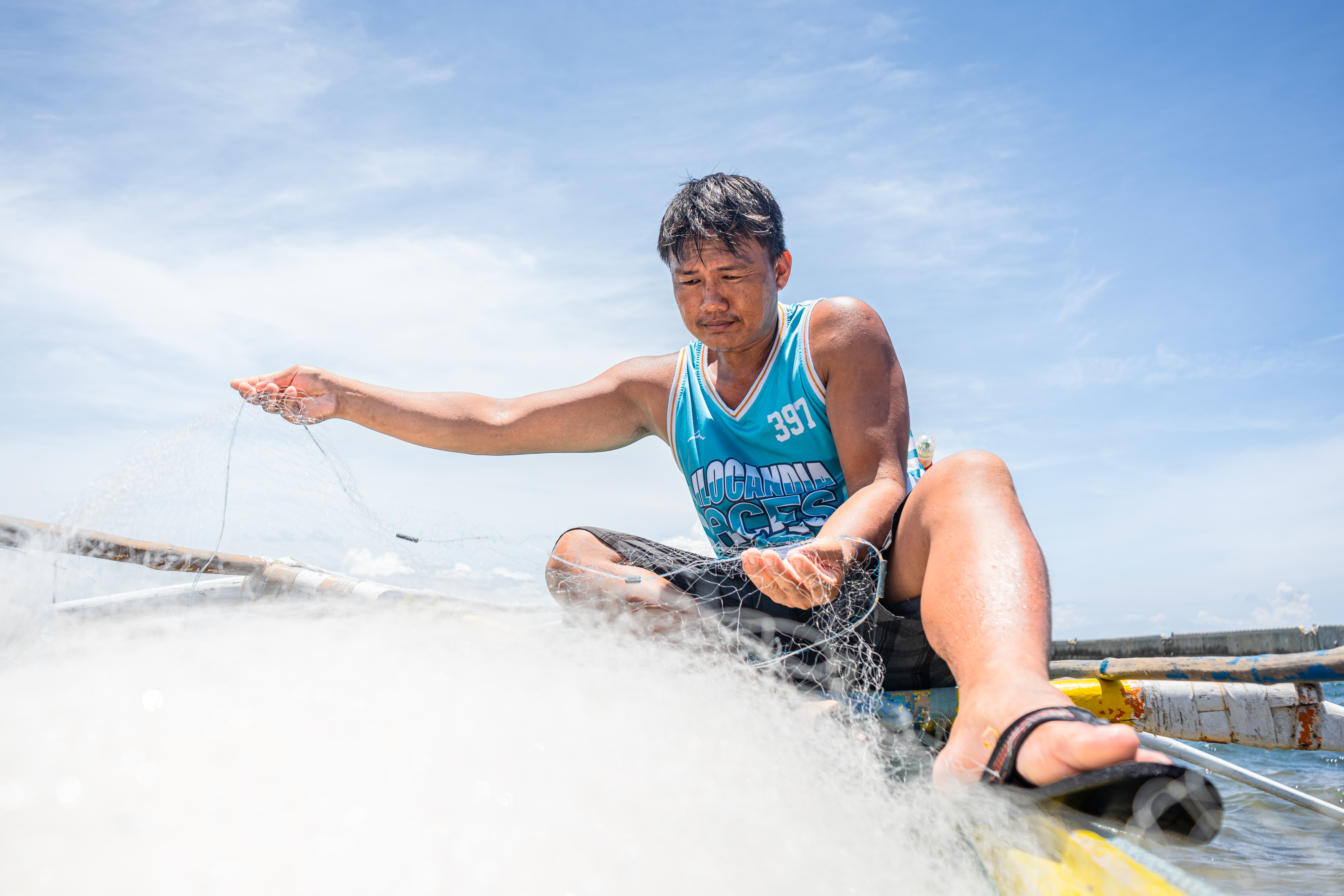
For many, the sea is a source of livelihood, but for Kuya Rogelio, it is both a challenge and a deep-rooted way of life. Each day spent navigating its unpredictable tides is a reminder of the resilience needed to survive. He reflects on the struggles that come with fishing, especially when storms hit. "Pag may bagyo po, mahirap, ta’s minsan hindi pa po kami makalaot," he shares, explaining how inclement weather often forces fishermen to stay ashore, making it difficult to earn a living.
Despite these setbacks, Kuya Rogelio remains grateful for the support they receive from government agencies and organizations like BFAR. "Minsan nagbibigay po sila ng lambat tsaka payaw. Karamihan sa mga binibigay na tulong nila ay gamit namin sa pangingisda," he says, acknowledging that these donations, such as fishing nets and payaw (fish aggregating devices), are essential in helping them sustain their fishing practices.
In their coastal village, tourism is a rare occurrence. Instead, the community’s main focus remains on fishing as a means of survival. "Madalang po puntahan ng turista, madalas pang hanapbuhay lang po namin ito talaga," Rogelio explains, highlighting that their livelihood relies heavily on the sea and their daily catch.
What gives him hope, however, is the increasing interest in fishing among the younger generation. "Marami pong interesado sa pangingisda, lalo na ‘yung mga batang edad sampu pataas, dahil madalas sila sumama sa mga magulang nila pag lumalaot," he notes with pride. Seeing the children of their community eager to learn and carry on the tradition gives him confidence that the legacy of fishing will continue to thrive for generations to come.
For Kuya Rogelio, the sea’s challenges are not just obstacles, but opportunities to instill a sense of pride and purpose in those who follow in his wake.
Kuya Jason, 32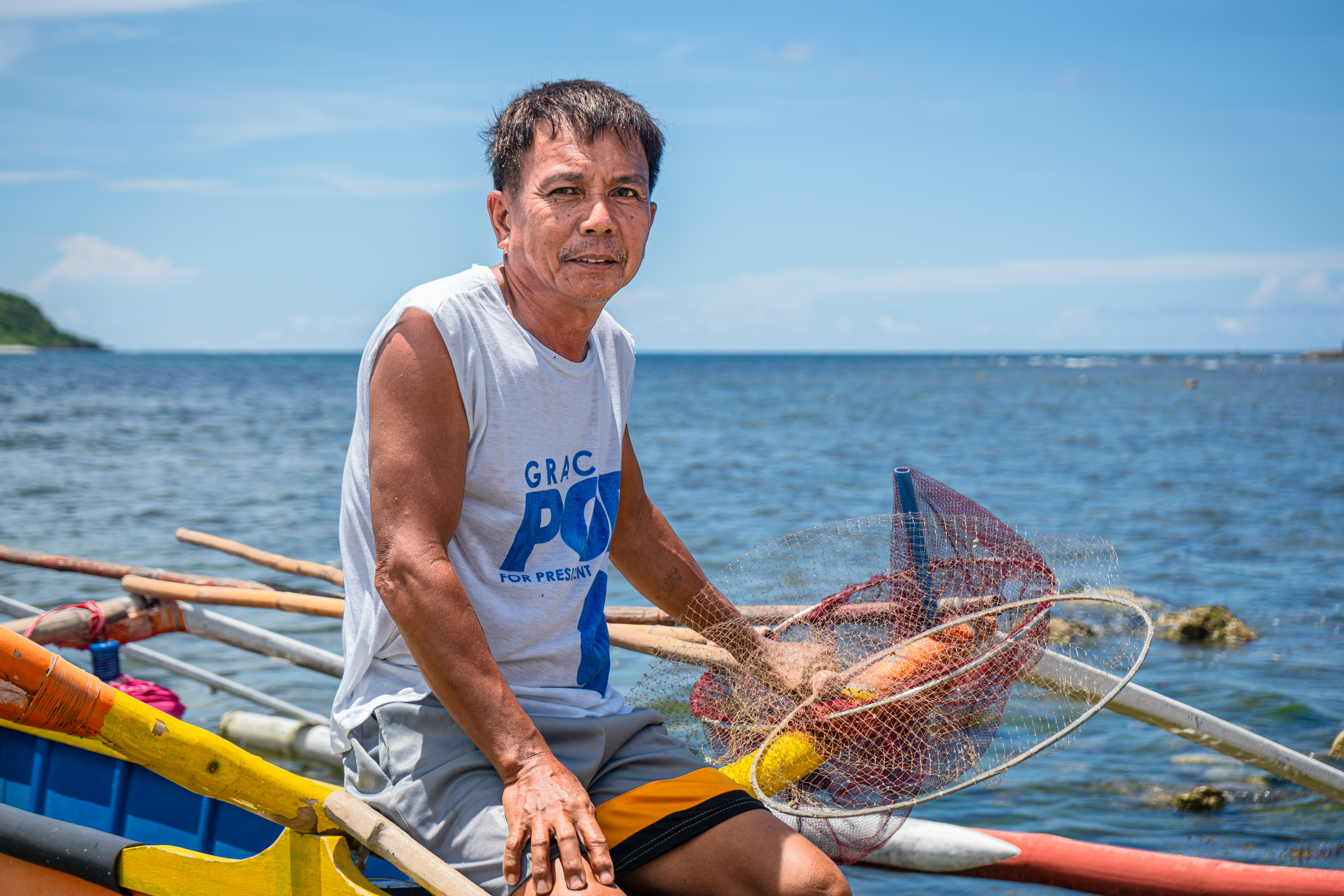
Relatively new to the trade, Kuya Jason was a former tricycle driver and farmer who had only recently entered the fishing industry. At 32 years old, he has been fishing for less than a year but has pulled in good hauls of fish daily. “Kapag maganda ‘yung panahon, halos araw-araw marami kaming nakukuhang isda. Parati kaming nakakahuli ng galunggong, dilis, at iba pa,” Kuya Jason shares.
But during times of natural calamities, this isn’t always the case. Kuya Jason also mentioned how due to the pandemic a few years back, the fishing industry weakened. This is also coupled with the more frequent typhoons. “Gawa kasi ng pandemic, bumaba ‘yung lakas ng pangingisda rito. Karamihan sa mga nandito, pangingisda talaga ‘yung hanapbuhay. Talagang kaunti nakukuha namin kapag binabagyo rito. Wala kaming napapalaot rito,” he aired out.
Despite these difficulties, the fishing industry in Ilocos Sur is somewhat supported by the local government and through tourism. Kuya Jason added, “Malaking tulong sa turismo ang pangingisda. Di porket pangingisda ikinabubuhay sa tabing-dagat, hindi nakakasuporta sa pamilya. Kapag may nahuhuling isda, nakakasuporta kami sa isa't-isa.”
While fishing is the main trade for Kuya Jason so far, he does believe that it shouldn’t be the primary source of income within his community. “Sa tingin ko, hindi lang dapat sa pangingisda yung pokus dito. Kasi kung walang nahuhuli, naghahanap din kami ng ibang hanap-buhay katulad ng construction, ” he emphasizes.
The craft of fishing isn’t as stable as anyone would think. For Kuya Jason, a lot of factors still play into the success of this trade and he can only reel in as much within the day to support his family and fellow fishermen.
Kuya Elmer, 36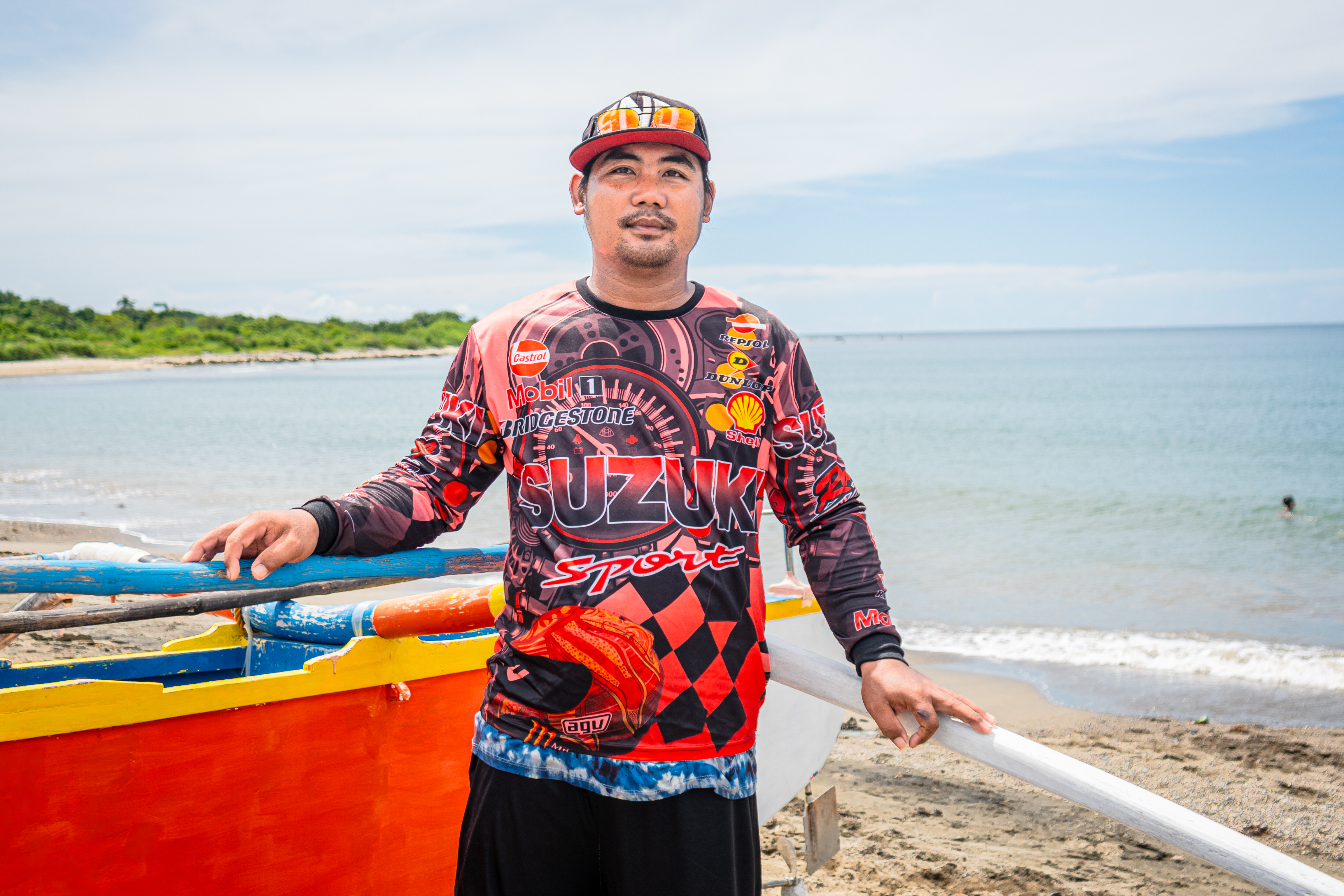
Mainly catching Blue Marlin and Yellow Fin fishes, Kuya Elmer has been in the trade of fishing for 18 years. He has seen the fishing industry rise and fall, especially as of late with issues of oil spills. “Humina ‘yung industriya ngayon. Walang masyadong huli sa ngayong panahon. May mga pagbuhos din kasi ng langis sa dagat,” he narrated.
While Kuya Elmer tries to face such issues like the oil spills head-on, he does receive some support from the government to help with his necessities as a fisherman. “Mga tali at lambat binibigay ng lokal na pamahalaan. Meron din kaming nakukuhang pera panggastos. Bihira nga lang din binibigay ‘yung ayuda.”
Similar to other fishermen in Ilocos Sur, Kuya Elmer sees how the youth within the province display an interest in fishing. However, for him, he doesn’t want them to take up the craft at an early age and just focus on their education.
Kuya Elmer asserted, “Hindi naman tinuturo kasi nag-aaral pa sila. Nakikita naman nila at inoobserbahan ‘yung mga ginagawa namin para alam nila ano gagawin kapag nagkataon kailangan nila. Pero sinisugurado ko na mag-aral muna sila.”
To keep supporting his own family, Kuya Jason continues to work hard in his trade. He imparts the impact of fishing on his family and community, saying “Nakatutulong ang pangingisda sa mga batang mag-aaral. Pang-hanapbuhay talaga [namin]. Pero kapag lumalakas ‘yung hangin at alon nga lang, walang pumupunta sa laot kasi delikado rin. Wala kaming hanapbuhay tuloy…”
“Kapag nakahuli ng marami, nagagamit namin bilang tubo. Pwede naming gamitin sa paggawa ng bahay namin, pang-kain sa pamilya at iba pa. Para talaga sa mga gastusin para sa mga pamilya,” he adds.
With fishing being affected by various external factors, Kuya Jason tries to make ends meet as much as he can.
There is an uncertainty that comes with the trade of fishing. For the fishermen of Ilocos Sur, their unwavering spirit sustains their families despite the unpredictable seasons and dwindling resources. These fisherfolk remind us of the vital role they play—not just feeding their families and communities but anchoring a way of life that is inseparable from the province’s culture.

